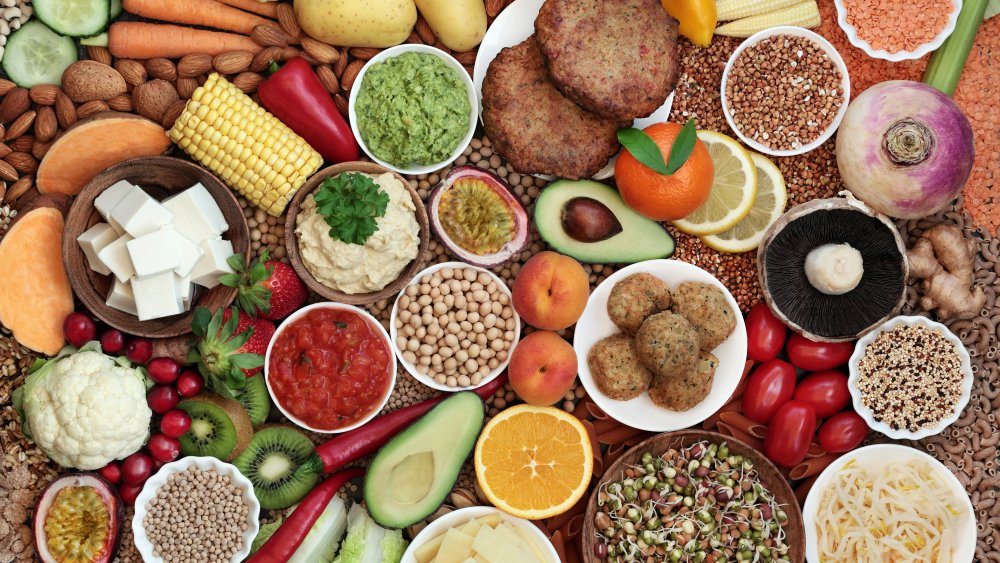Animal Protein Vs Plant Protein: Which One Is Better For You?
Getting enough protein in your daily diet is critical, but when it comes to choosing your protein source, you might be wondering if an animal or plant-based source is healthier. On a daily basis, you need at least 46 grams of protein for women and 56 grams for men (via Harvard Health Publishing). But the quality of your protein source can vary greatly, and there are different benefits and pitfalls depending on what type of protein you're eating.
Protein is made up of nine different types of amino acids that are critical for your health. Animal-based proteins like chicken, beef, and fish have a full range of amino acids (via Healthline). Plant-based proteins like lentils, quinoa, and soy are considered incomplete proteins, meaning they are missing some of the vital amino acids that your body needs. However, it is possible to combine plant-based proteins with other sources to create a complete protein: Pairing black beans with rice, for instance, creates a complete amino acid profile (via Livestrong).
Focus on protein quality, not type
Plant-based diets are linked to health benefits from lowered risk of heart disease and type 2 diabetes to leaner body composition. But researchers have noted that this is at least partly because plant-based eaters tend to make healthier choices in general, opting for less processed foods and more fruits and vegetables in general (via PubMed). Diets that are high in saturated fats found in some animal products, on the other hand, are linked to a greater risk for heart disease and failure as well as stroke (via PubMed). However, leaner animal-based sources, like poultry, fish, and dairy, have been linked to healthier heart outcomes (via Healthline).
Quality of protein is arguably more important than type of protein. For example, when looking at protein powders, The Clean Label Project found that 70 percent of the powders they tested contained lead and 55 percent contained high levels of BPA plastics. Plant-based protein powders tested highest for lead (75 percent of them contained high levels) and other potentially dangerous additives.
Unfortunately, there isn't one clear winner in the 'best protein' contest. You should be eating protein from a variety of sources and focusing on quality options while skipping the deep-fried chicken wings or soy nuggets. For plant-based eaters, ensure that you're regularly getting a full amino acid profile in your meals, and for meat-eaters, remember that while vegetables might not be a critical protein source for you, it's important to keep them in your diet.


